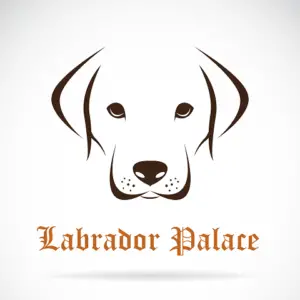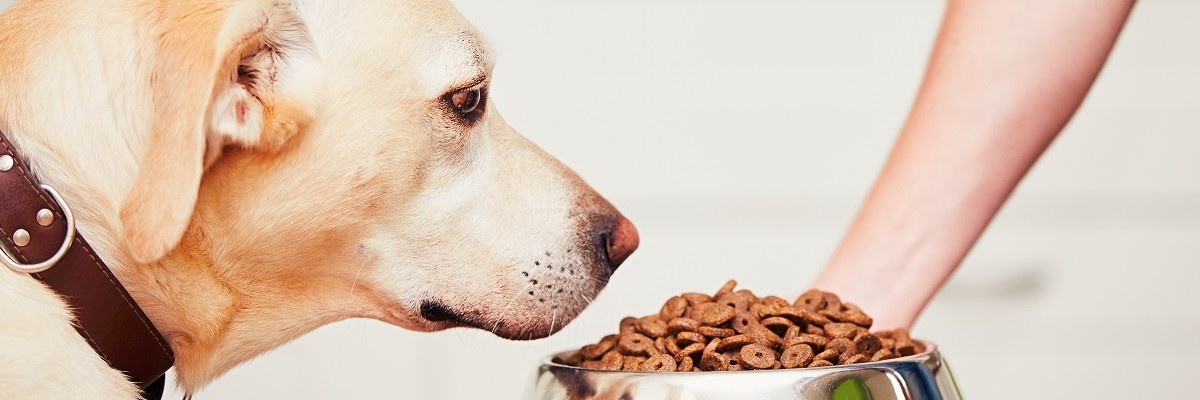No matter how long you’ve owned a Labrador Retriever or if you just got a puppy, it can still be upsetting when they won’t eat.
Dogs can temporarily lose their appetite for a short period of time without worrying. Sometimes dogs are not hungry or are under stress in their day, which makes them lose interest in eating.
A lack of appetite in dogs can be caused by a number of factors. To formulate the best health care strategy, it is essential to identify the cause of the problem.
Labradors who don’t eat are said to have anorexia. The condition differs greatly from anorexia nervosa, a condition in which people lose weight. In dogs, anorexia is more accurately defined as a total lack of appetite.
It is important to consult a veterinarian if your dog is showing signs of sickness due to a lack of appetite. An animal that usually eats regularly should be treated quickly if it refuses to eat.
It is best to resolve the issue as soon as possible even though most dogs can go without eating for a few days with only minor or no adverse effects.
Loss Of Appetite In Labrador Retriever Symptoms
| Refusing To Eat At All | Eating Less Than Usual |
| Not Eating Treats | Trying To Eat, but not being able to finish a meal |
| Weight Loss | Lack Of Energy |
| Vomiting |
Food Quality can affect Labrador Retrievers appetite.
There are several reasons why your Lab might not eat, including the following:
| Food That Has Gone Rotten can affect Labrador Retrievers Appetite |
|---|
| Many dogs refuse rotten food, which usually happens when the fat inside has broken down because of poor storage or old age. Rancidity is much more prevalent in high-fat foods than in low-fat foods. If you keep dog food outdoors, remember that it can grow mould that we can’t see, but dogs can certainly detect. |
| Dog Food With Palatants can affect Labrador Retrievers appetite. |
|---|
| Palatants are coatings applied to the outside of machine-made dog food to modify the taste. Some dogs like the additional flavor and others don’t. |
| Fresh Food |
|---|
| Fresh, tinned, or raw food may cause your Labrador Retriever to stop eating, because of the extra moisture and aroma it enjoys. It is common for raw diets to be high in protein, which dogs love. If you offer your Lab a fresh portion of their usual food, and they eat it immediately after receiving it, the old food might have become bad. If you were using dog food, try something else with similar ingredients and tastes, but in a wet form. It usually indicates that the problem is with the scent |
| Dog Snacks and Treats can affect Labrador Retrievers appetite |
|---|
| The overuse of dog treats will probably make your Lab fussier. Labrador Retrievers will expect the same thing from their food if they have experienced many different types of treats. It is probably only through experimentation that you can find out whether treats are affecting their appetite. You can limit the number of treats, swap out high-calorie treats for low-calorie alternatives, or provide treats on a strict schedule. |
| Your Lab being Bored can affect Labrador Retrievers appetiteIs it possible that your Labrador Retriever is just bored eating the same food? Probably not. For as long as the food is provided, most labs are happy to eat the same food. Your dog is unlikely to get bored if it doesn’t know there are other options. In the event your Lab suddenly decides to no longer want food, it might be because they have become conditioned to be selective. This might be a result of an element that we cannot identify, such as a slight modification in additives. As your Labrador Retriever matures, they are more likely to avoid eating food without apparent reason. We don’t know if this is due to changing tastes or true indifference. Whenever your lab seems to be getting bored with their food, try a different flavour within the same type of food. Perhaps switching from beef-fresh to lamb- or chicken-based food will be effective. |
|---|
Feeling Stressed can affect Labrador Retrievers appetite
It can be stressful for your Lab if there are new people and animals introduced into the house, especially if they are timid or elderly. If your Labrador is stressed, they may not be interested in eating because they are too focused on what’s going on around them.
Examine whether your lab is eager for its food based on the naturalness of its surroundings. Within a week or two, Labrador Retrievers working in a new household usually return to their old eating habits.
Illness can affect Labrador Retrievers appetite
Your Labrador’s reduced appetite is often a symptom of illness, especially if your Labrador Retriever also suffers from other ailments around the same time. While a loss of appetite in dogs is not necessarily a sign of serious illness, it should still be treated promptly because it can be a sign of cancer, multiple systemic infections, discomfort, liver disease, and renal failure.
Dental Issues can affect Labrador Retrievers appetite
Something may be hurting your Labrador’s mouth and preventing them from eating. Perhaps they have a broken or missing tooth, serious gum disease, or an oral tumor.
Vaccinations can affect Labrador Retrievers appetite
Many severe and contagious diseases of dogs can be prevented by vaccines. Despite saving the lives of millions of animals over the years, many of these treatments have adverse effects. These symptoms are usually mild and fleeting, like occasional loss of appetite in dogs.
Traveling can affect Labrador Retrievers appetite
In instances where your Labrador Retriever’s appetite was fine before you took them on a trip or moved to a new location, it might be that they won’t eat because they are not used to their new surroundings.
Travel sickness is a common occurrence in a number of animals, and some may become anxious or uncomfortable in new environments.

Home Remedies For Loss Of Appetite In Labrador Retrievers
There are a few ways you can encourage your Lab to eat when they are having trouble eating. If your Labrador Retriever does not like any of the foods you’re planning to feed it, or it’s giving them a stomachache, you may want to try different food.
Adding fresh water to the dry food can soften it, however, if the food is heated a little. By doing this, we will be able to determine whether it makes ingesting it much easier. You should visit your veterinarian if neither of those things worked within 24 to 48 hours.
See Your Vet if your Labrador Retriever has no appetite
There are a number of steps to take when your Lab is refusing to eat. These steps depend on what you and your vet determine to be the source of the problem.
Your veterinarian may recommend a prescription diet to meet the nutritional requirements of your pet while the underlying illness is being treated. This is if your dog is not eating due to illness.
Most Labradors do not enjoy these diets, especially if they are used to frequent treatments. Don’t force your Lab to eat food that it is not supposed to eat if he or she is already ill. You may want to discuss other options with your vet.
In more severe cases, your veterinarian may prescribe hunger-stimulating medicines, suggest a medicine dropper feeding a liquid diet, or suggest using a feeding tube.


